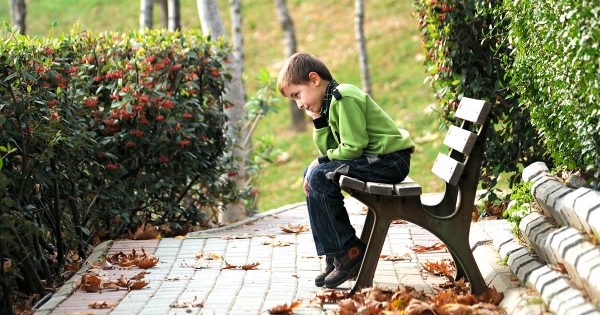 Whenever we experience a loss, we grieve. How we grieve is determined by many factors, but the reality is, we grieve. When children and teenagers lose someone through death they also grieve.
Whenever we experience a loss, we grieve. How we grieve is determined by many factors, but the reality is, we grieve. When children and teenagers lose someone through death they also grieve.
Like adults, children and teenagers’ responses are unique. They may have physical complaints, experience difficulty in concentrating or staying on task and feel a range of emotions, from anger and sadness to guilt and anxiety.
Often we hear, “I don’t think my daughter understands what has happened, because she just wants to play with her friends,” or “His teammate died, and yet he is going out with friends.” A young person may struggle with the intensity of grief, and sustaining such strong emotions is difficult. This is described by some professionals as a “short feeling span.” The pain of loss can be sustained for only so long before they are compelled to seek a distraction.
It is important to offer assistance appropriate to one’s developmental level. Children respond to their grief as it expresses itself to them. They process as they go along and re-grieve when an event, such as their first basketball game, donuts with dad or a first dance, reveals an additional layer of loss. These events bring forward the realization of the permanence of the death and the future losses to be experienced.
When they enter their teen years, children can sometimes receive messages to move quickly through their grief. Because of their need to conform to peers and fear of appearing “different,” they may minimize expressions of grief. Teens are also facing life issues (dating, life planning, graduation, etc.) that compel them to put grief on the back burner.
Teens may also be encouraged to take a more adult role in the household, assuming responsibilities to ease the stress on a surviving parent, leaving little time to grieve. All this creates a situation where teens may have to begin their grief journeys all over again (in their 20s) when these other issues subside.
In school, while the child or teenager is expected to carry on with math assignments and listen to the science lecture, his/her emotions associated with a loss are churning inside. Teachers faced with increasing demands on their time and attention are not prepared for or equipped to address these issues, or perhaps to even be aware of what is happening.
So, how do we help our children and teenagers cope with the natural occurrence of loss and grief in their lives? For young people to learn to grieve in a healthy manner, they need understanding, information and support.
Parents can provide great support at home, but since our children and teenagers spend so much of their lives in school, there is growing awareness of the school’s role in meeting the needs of the grieving student—and programs are being developed in response. Through understanding and support, an atmosphere of healing can be created.
Click to download and print When Young People Experience Grief article.
Hospice of the Red River Valley has many resources available for the public, on a loan basis, through the resource libraries in each of our offices. Topics include caregiving, terminal illness, dying, death, grief and loss. To view more information about our grief support services, visit the grief support section of our website or call us at (800) 237-4629.

